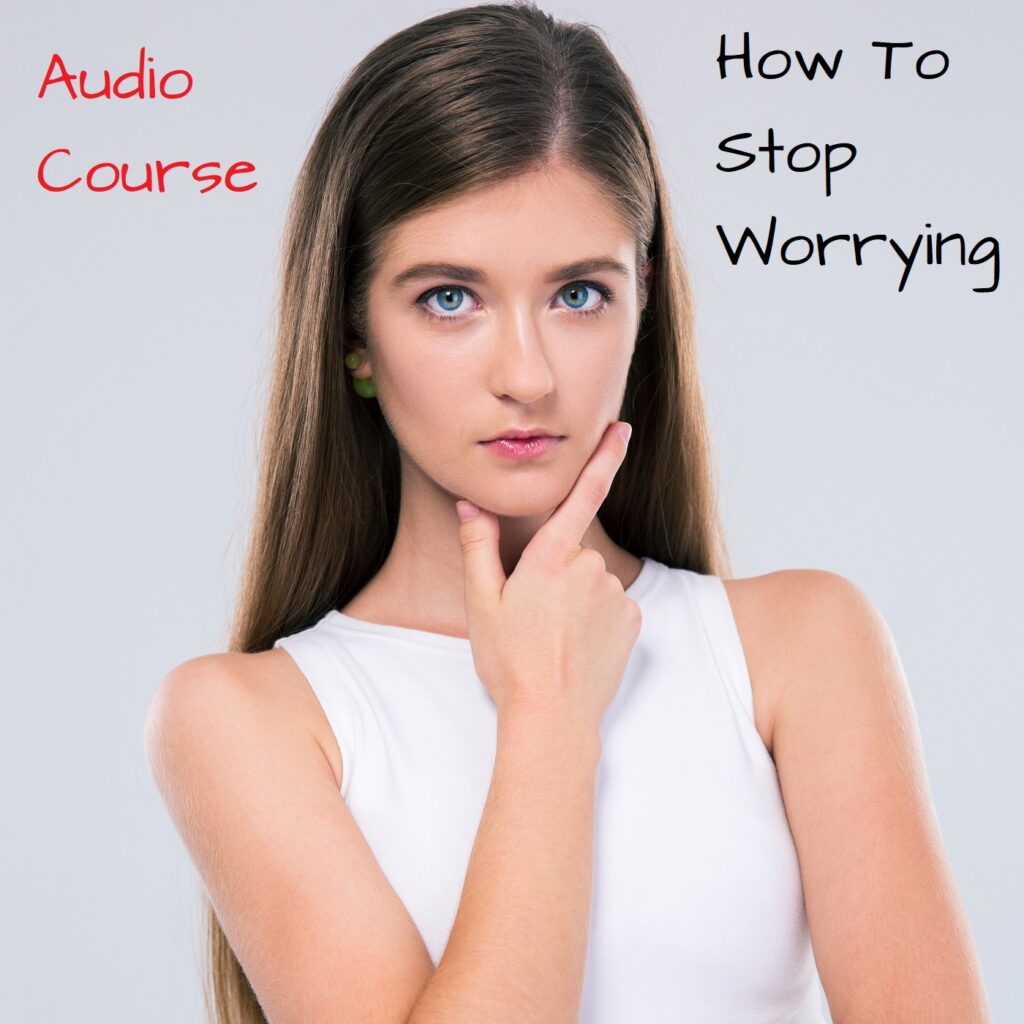There are a lot of people that idolize others and end up being overly dependent on them. They dedicate their lives to making these people happy and can only be happy themselves if they feel they have done enough.
In this situation the person being idolized has too much control of the other person.
Not all comparisons are bad as you will learn in this course. You can use comparisons to improve your life and you will learn exactly how to do this.
The aim of this video course is to move you away from negative comparisons and start using positive comparisons to make your life better.
Topics covered:
Why We Compare Ourselves To Others
The Dangers Of Comparing Yourself To Others
How To Make Healthy Comparisons
Small Steps For Big Changes
Love Yourself More And Stop Being Overly Dependent On Others
Boosting Your Self Esteem
Give Your Confidence A Real Boost
Advanced Tactics To Compare Yourself To Others In A Good Way
Comparing Yourself With Others Best Practices

Worrying is a common human experience, but excessive worry can be detrimental to your mental and physical health. Here are some strategies to help you stop worrying and regain control of your thoughts and emotions:
- Identify the Source of Worry:
- Start by identifying what is specifically causing you to worry. Is it a specific event, a future outcome, or a general feeling of anxiety?
- Practice Mindfulness:
- Mindfulness techniques, such as deep breathing and meditation, can help you stay present and reduce anxiety about the future.
- Limit Exposure to Triggers:
- If certain situations or people trigger your worry, try to limit your exposure to them or find healthier ways to cope.
- Set Aside “Worry Time”:
- Allocate a specific time each day to worry, and use that time to consciously think about your concerns. When worries arise outside of this designated time, remind yourself that you will address them during your worry time.
- Challenge Negative Thoughts:
- Question the validity of your worries. Ask yourself if there is evidence to support your concerns or if you are making assumptions. Often, worries are based on irrational or exaggerated thoughts.
- Practice Relaxation Techniques:
- Progressive muscle relaxation, deep breathing exercises, and visualization can help reduce anxiety and stress.
- Stay Active:
- Regular physical activity can help reduce anxiety and improve your overall well-being.
- Stay Connected:
- Share your worries with a trusted friend or family member. Talking about your concerns can provide emotional support and help you gain perspective.
- Keep a Worry Journal:
- Write down your worries in a journal. This can help you organize your thoughts and track patterns in your worrying.
- Focus on Solutions:
- Instead of dwelling on the problem, shift your focus to finding solutions. What steps can you take to address the source of your worry?
- Limit Caffeine and Alcohol:
- These substances can increase anxiety and exacerbate worry. Limiting your intake may help reduce anxiety.
- Get Adequate Sleep:
- Lack of sleep can make worry worse. Ensure you are getting enough restful sleep each night.
- Seek Professional Help:
- If your worrying is severe and interfering with your daily life, consider seeking help from a mental health professional. Therapy, such as cognitive-behavioral therapy (CBT), can provide effective strategies for managing worry.
- Practice Gratitude:
- Focus on the positive aspects of your life. Keeping a gratitude journal can help shift your mindset toward positivity.
- Accept Uncertainty:
- Understand that not everything can be controlled or predicted. Learning to accept uncertainty can reduce the need to worry about every possible outcome.
- Learn from Past Experiences:
- Reflect on past worries and how often they turned out to be unfounded. Use this as evidence that your current worries may not be as dire as they seem.
Remember that it takes time and practice to reduce excessive worrying. Be patient with yourself, and don’t be afraid to seek professional help if needed. Learning to manage and stop worrying is a valuable skill that can significantly improve your quality of life.